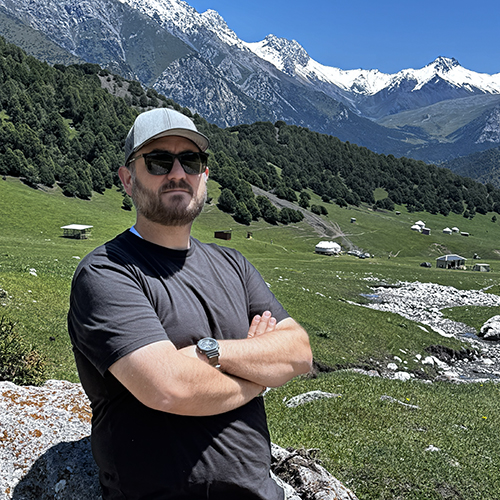On a crisp fall afternoon in New York City, an estimated 50,000 visitors descended on Central Park for Ultimate Block Party, an event celebrating the importance of play for children’s developing brains. Between a massive LEGO display, a visit from Mary Poppins, and Manhattan’s largest “Simon Says” game, a team from the UW’s Institute for Learning & Brain Sciences (I-LABS) drew crowds of its own with activities that demonstrate the benefits of bilingualism.
I-LABS co-director Patricia Kuhl, UW professor of speech and hearing sciences, serves on the scientific board for the Ultimate Block Party, an event dreamed up by longtime researchers in the field of language and cognitive development. “This event is a great reminder that good old-fashioned play is vital to children’s development and success in both school and life," says Kuhl. "Play gives the brain exercise in creativity, because children are free to explore and invent the tools and ideas that make it up.”

At the I-LABS booth, Kuhl and other I-LABS staff, along with volunteers, coordinated bilingual bingo, sorting games, and other activities that demonstrate how bilingual learning can benefit young minds. The games, based on cognitive research, were designed by a team led by Gina Lebedeva (MS, PhD, ’10), I-LABS’s director of Translation, Outreach, and Education. “All the games were evidenced-based adaptations of experimental tasks that have been used in research studies,” she says.
Research from I-LABS and other groups has shown a relationship between diversity of language and enhanced brain and behavioral functioning for certain skills. Children who know more than one language tend to be better at solving problems that require flexible thinking when compared to people who know only one language, possibly because bilingual brains are accustomed to “switching” back and forth between two languages and the variations in words, pronunciation, and grammatical structure.
“Bilingualism is a very hot topic in research because of the growing population of bilingual children in this country,” says Lebedeva. “One of the areas I-LABS is researching is the relationship between early bilingual exposure and brain development. At Ultimate Block Party, we wanted to assure parents that it’s okay to speak your native language at home—your children are not going to be behind just because they’re bilingual. In fact, the stronger the skills in the native language, the more easily they will be able to learn to read and to possibly pick up another language.”

The message was welcome news to the many bilingual families who visited the booth. “I think it was important for them to feel validated by the research,” says Lebedeva, who was impressed by the turnout, particularly after meeting parents who took three subways with four kids in tow to attend. Grade school teachers also visited the booth, often commenting that they plan to adapt some of the new I-LABS games for their classroom.
Although Ultimate Block Party was fun for children, there was a serious message for families about play being more than entertainment. “We adults divide the world into work versus play, but for a child playing is learning,” says Andrew Meltzoff, I-LABS co-director and UW professor of psychology. “Hunger for learning starts on the living room floor, with caretakers and children stacking blocks, playing with keys, imitating each other, impersonating and pretending.” Related research conducted at I-LABS aims to examine the impacts of diversity and cultural traditions on human development and learning.
The Ultimate Block Party was co-sponsored by the LIFE Center (Learning in Information and Formal Environments), funded by the National Science Foundation. Kuhl is director and principal investigator of LIFE, which represents collaboration among UW’s I-LABS and College of Education, Stanford University, and SRI International.
More Stories

AI in the Classroom? For Faculty, It's Complicated
Three College of Arts & Sciences professors discuss the impact of AI on their teaching and on student learning. The consensus? It’s complicated.

Through Soil Science, an Adventure in Kyrgyzstan
Chemistry PhD alum Jonathan Cox spent most of 2025 in Kyrgyzstan, helping farmers improve their soil—and their crops—through soil testing.

A Sports Obsession Inspires a Career
Thuc Nhi Nguyen got her start the UW Daily. Now she's a sports reporter for Los Angeles Times, writing about the Lakers and the Olympics.